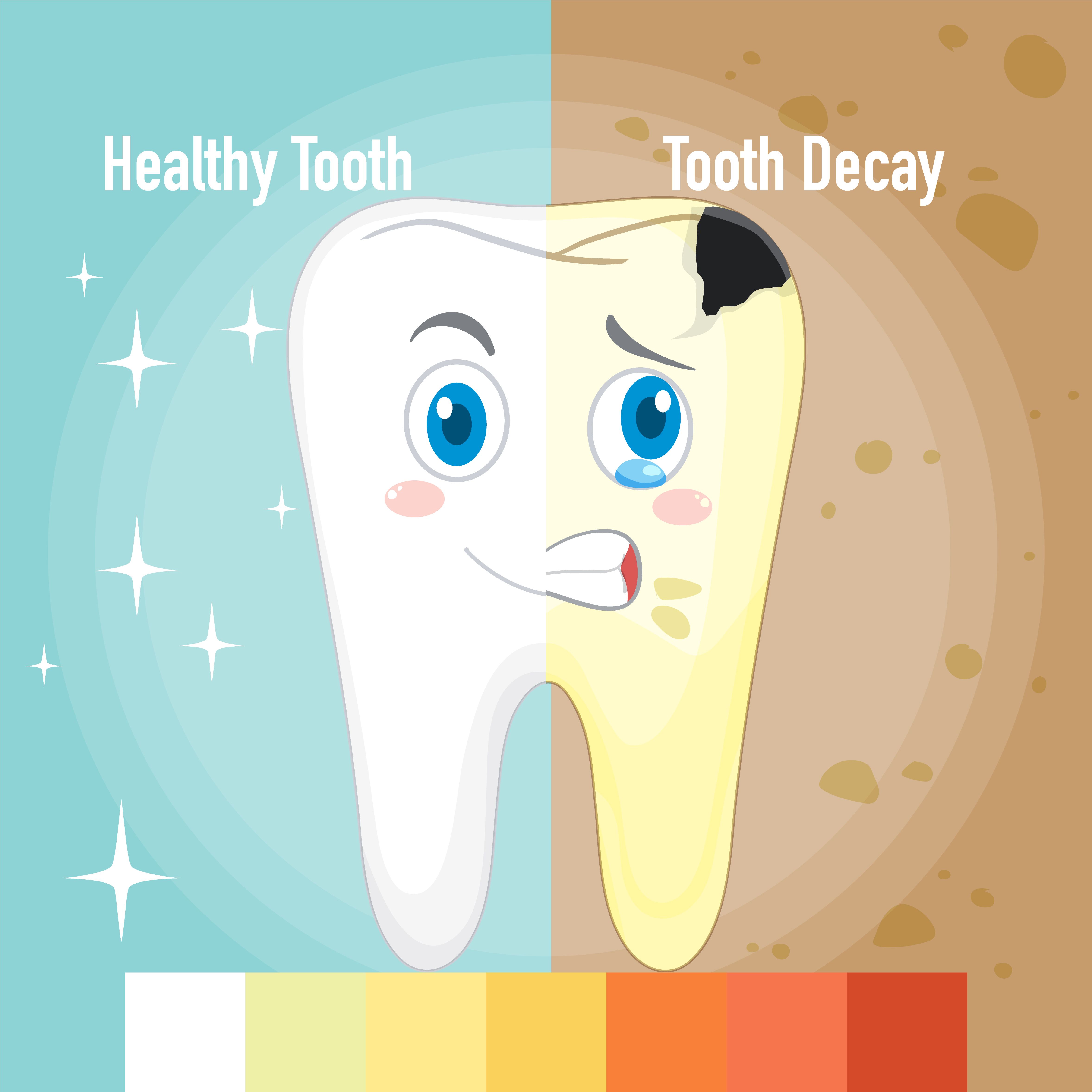Common Complications of Dental Bone Grafting and How to Prevent Them
Dental Implants Solutions
Dental bone grafting is a surgical procedure commonly used to replace missing bone in the jaw, whether to support dental implants or to treat specific dental conditions. It is generally a safe and effective procedure. However, there is always a risk of complications, just like any surgical intervention. These complications can range from minor bleeding and swelling to more severe, such as nerve damage or infection.
This blog will explore some of the most common complications associated with dental bone grafting and the risk factors and prevention strategies that can help minimize their occurrence.
What is Dental Bone Grafting?
Dental bone grafting is a surgical procedure to repair or regenerate bone in the jaw, particularly when the bone has been lost due to injury, disease, or tooth loss. It involves transplanting bone tissue from one part of the patient's body or from a donor source to the site where new bone is needed. The new bone tissue acts as a scaffold, promoting the growth of new bone cells and blood vessels in the area.
Common Complications of Dental Bone Grafting
While dental bone grafting is generally a safe and effective procedure, there is always a risk of complications.
- Bleeding and Swelling: It is common for patients to experience some bleeding and swelling after a bone grafting procedure. This is usually mild; ice packs, pain medication, and proper post-operative care can be used. However, excessive bleeding or swelling may indicate a more serious complication.
- Infection: Infection is a common complication of any surgical procedure, including dental bone grafting. Signs of infection include fever, severe pain, swelling, or discharge from the surgical site. Prompt treatment with antibiotics is essential to prevent the infection from spreading.
- Nerve Damage: Nerve damage can occur if the grafting material is placed too close to nerves in the jaw. Symptoms of nerve damage include numbness, tingling, or loss of sensation in the affected area. In severe cases, nerve damage results in permanent loss of sensation or movement.
- Graft Failure: The bone graft may fail to integrate with the surrounding bone tissue, leading to graft failure. This may be due to poor blood supply to the graft, infection, or improper placement of the grafting material.
- Sinus Complications: Dental bone grafting in the upper jaw can sometimes cause complications with the sinuses. This may include sinus infections or pressure, which can be managed with medication or drainage.
While complications from dental bone grafting are possible, they can often be managed or prevented with proper care and attention. Patients considering a bone grafting procedure should discuss concerns or questions with their dental professional to ensure a safe and successful outcome.
Risk Factors for Complications
Smoking: Smoking is a major risk factor for complications in dental bone grafting. Nicotine in tobacco smoke can impair blood flow and slow healing, making it more difficult for the graft to integrate with the surrounding bone tissue. Smokers may be at increased risk of graft failure, infection, and other complications.
Poor Oral Hygiene: Poor oral hygiene increases the risk of complications in dental bone grafting. Bacteria in the mouth can cause infections or interfere with the healing process, leading to complications such as graft failure or infection. Patients with a history of gum disease or other oral health problems may be at higher risk of complications.

Certain Medical Conditions: Certain medical conditions can increase the risk of complications in dental bone grafting. These may include autoimmune disorders, such as lupus or rheumatoid arthritis, and states that affect bone density, such as osteoporosis. Patients with these conditions may require additional monitoring or precautions during the procedure.
Medications: Some medications can also increase the risk of complications in dental bone grafting. For example, blood-thinning medications such as aspirin or warfarin can increase the risk of bleeding during the procedure. Patients should inform their dental professional of any medications they are taking and follow any instructions regarding medication use before and after the procedure.
Inexperienced or Unqualified Surgeons: Finally, inexperienced or unqualified surgeons can also increase the risk of complications in dental bone grafting. Patients must choose a qualified and experienced dental professional who has performed many bone grafting procedures and is familiar with the latest techniques and technologies.
Prevention Strategies
- Quit Smoking: Quitting smoking is one of the most effective ways to reduce the risk of complications. Smoking patients should quit well before the procedure to allow their bodies to heal and reduce the risk of complications.
- Practice Good Oral Hygiene: Good oral hygiene is essential to reduce the risk of complications in dental bone grafting. Bacteria in the mouth can cause infections or interfere with the healing process, leading to complications such as graft failure or infection. You should brush and floss your teeth regularly and use an antiseptic mouthwash as their dental professional prescribes. Patients with a history of gum disease or other oral health problems should address these issues before undergoing the procedure.
- Manage Medical Conditions: Certain medical conditions can increase the risk of complications in dental bone grafting. Patients should inform their dental professional of any medical conditions and follow any instructions regarding medication use before and after the procedure. Patients with autoimmune disorders, such as lupus or rheumatoid arthritis, or conditions that affect bone density, such as osteoporosis, may require additional monitoring or precautions during the procedure.
- Follow Medication Instructions: Some medications can also increase the risk of complications in dental bone grafting. Patients should inform their dental professional of any medications they are taking and follow any instructions regarding medication use before and after the procedure. For example, blood-thinning medications such as aspirin or warfarin may need to be temporarily discontinued before the procedure to reduce the risk of bleeding.
- Choose an Experienced and Qualified Surgeon: An experienced and qualified surgeon is essential to reduce the risk of complications in dental bone grafting. Patients should research their surgeons and ensure they are trained and experienced in bone grafting procedures. The surgeon should also be familiar with the latest techniques and technologies to reduce the risk of complications and improve the procedure's success.
What to Do if You Experience Complications?
If you experience complications following dental bone grafting, it's essential to seek prompt medical attention from your dental professional. Some common complications include infection, bleeding, pain, swelling, and graft failure. Following are some steps you can take if you experience any of these complications:
Contact Your Dental Professional: If you experience complications following dental bone grafting, contact your dental professional immediately. They can evaluate your symptoms and guide the next steps.
Follow Their Recommendations: Your dental professional may recommend additional treatment or medication to manage your symptoms and address complications. Following their recommendations closely is important to ensure the best possible outcome.
Manage Pain and Swelling: Pain and swelling are common after dental bone grafting. However, over-the-counter pain medication and ice packs are helpful. Your dental professional may also prescribe pain medication or recommend other methods for managing pain and swelling.
Monitor for Signs of Infection: Infection is a potential complication of dental bone grafting. Symptoms of infection include fever, increased pain, redness, swelling, and pus or discharge from the surgical site. If you experience any of these symptoms, contact your dental professional immediately.
Take It Easy: Following dental bone grafting, rest and take it easy for a few days to allow your body to heal. Avoid strenuous physical activity, smoking, and drinking alcohol, which can slow healing and increase the risk of complications.
Conclusion
In conclusion, dental bone grafting is a standard procedure that can help restore bone density and support dental implants. However, like any surgical procedure, complications can occur. Common complications include infection, bleeding, pain, swelling, and graft failure. Risk factors for complications include smoking, poor oral hygiene, and certain medical conditions. To prevent complications, it's important to follow pre-and post-operative instructions carefully, maintain good oral hygiene, and avoid smoking and alcohol. If complications occur, seeking prompt medical attention from your dental professional is important. With proper care and attention, you can manage most complications and improve the success of the bone grafting procedure.
Contact your Walnut Creek dentist, Massood Darvishzadeh, DDS, at Dental Implant Solutions to learn more about Common Complications of Dental Bone Grafting and How to Prevent Them.
Resource:
Bone grafting for dental implants: How does it work?
*This media/content or any other on this website does not prescribe, recommend, or prevent any treatment or procedure. Therefore, we highly recommend that you get the advice of a qualified dentist or other medical practitioners regarding your specific dental condition*
Subscribe To Our Newsletter
Get Updates And Learn From The Best
More To Explore



CONTACT US
Massood Darvishzadeh, DDS
2021 Mt Diablo Blvd., Suite 100A
Walnut Creek, CA 94596
(925) 939-2600info@dentalimplantsolutions.net